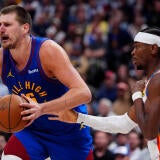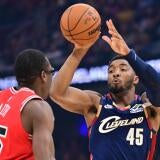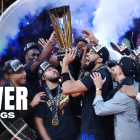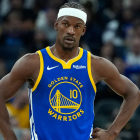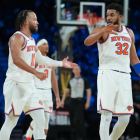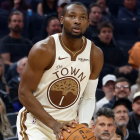
Do the Mavericks really see Kyrie Irving as part of their future? Dallas reportedly doesn't want to trade star
If Dallas is open to trading Anthony Davis, then why would Irving be any different?
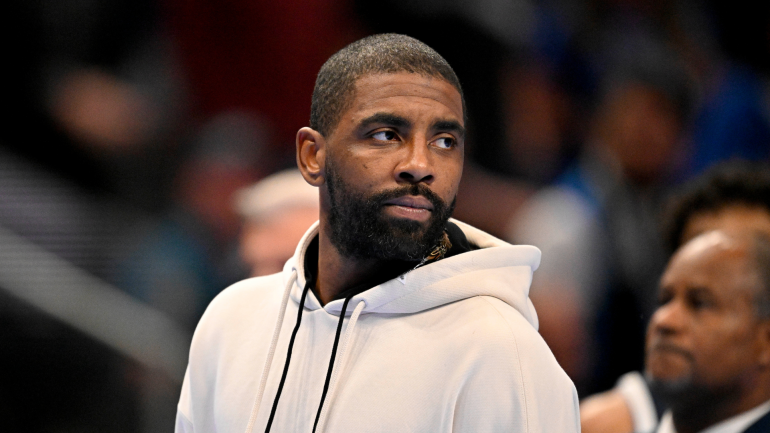
Kyrie Irving will be 34 years old in March. He tore his ACL eight months ago. If the post-Nico Harrison Dallas Mavericks are open to trading Anthony Davis, who is one year younger than Irving, then presumably they would be just as open to an Irving deal... right?
Instead, the team is reportedly still fully committed to keeping Irving around.
"Teams are actually sniffing around Kyrie Irving -- his availability on the court, potentially trade-wise and his playing status the rest of the season -- but my understanding is the Mavericks have made it clear privately that they want Kyrie Irving as a complete part of their future moving forward," Shams Charania said on "NBA Today." "He's still in recovery, in rehab from that ACL tear from March, he signed a three-year deal in the offseason, but the Mavericks value his leadership on the court, off the court and his fit with Cooper Flagg, too, potentially.
"Cooper Flagg is going to need a point guard whenever [Irving] is ready to be back out on the court and you just see right now how much this team misses Kyrie Irving, some of these close games that they've had. And that's the difference, though, between the Kyrie Irving situation and the Anthony Davis situation: Listening to potential trade calls on Anthony Davis, but with Kyrie Irving, they want him a part of their future moving forward."
On the court, a healthy Irving could certainly help Flagg. The Mavericks have been the worst offensive team in the NBA and they are desperate for more playmaking. In the bigger picture, though, if they've pivoted to building around Flagg, who doesn't turn 19 for another month, it's hard to understand why Irving would be off-limits in trade discussions.
Dallas is "not encouraging trade inquiries" for Irving, according to Marc Stein of The Stein Line, who noted that the nine-time All-Star is "already vibing nicely" with Flagg in practice. He also noted, however, that, after the 2026 Draft, the Mavs won't control their own draft pick until 2031. You do not need an advanced understanding of NBA team-building to see the simplest path forward: Trade veterans for picks and prospects, bottom out this season, then build something new around Flagg and the player they pick next June.
This is not to say that everything about the Irving situation is simple. He and the organization need to weigh the pros and cons of him returning to the court this season. If he does return, though, and he plays well enough before the Feb. 5 trade deadline, then he could have a more interesting trade market than Davis by virtue of his contract. Irving is making $36.6 million this season, is owed $39.5 million next season and has a $42.4 million player option in 2027-28. (Davis' deal is structured the same way, but the numbers are much bigger: $54.1 million, $58.5 million, $62.8 million.) Regardless of Dallas' reported plans at the moment, a bidding war for Irving would be ideal.
The Mavericks are in a healthier place than they were a couple of weeks ago, but it's still a strange situation. If they make a major move (or multiple major moves) around the deadline, it is unclear who exactly will be doing the negotiating. While they look for a new lead executive, Matt Riccardi and Michael Finley are sharing that responsibility on an interim basis. Minority owner Mark Cuban is involved again, and he told The Athletic that they are still trying to win and not even looking to trade Davis, who remains sidelined with a calf injury. Sure.
Dallas is 4-12, but that doesn't have to be a bad thing. By firing the guy who didn't believe in Luka Dončić but believed in this oddly shaped roster, the franchise has given itself an opportunity to turn the page on the most galaxy-brained experiment in NBA history. Now it's time for the Mavs to do the conventional thing: Prioritize Flagg and their future above all else. This doesn't mean they absolutely must trade Irving in the next two and a half months, but they'd be crazy to rule it out.


